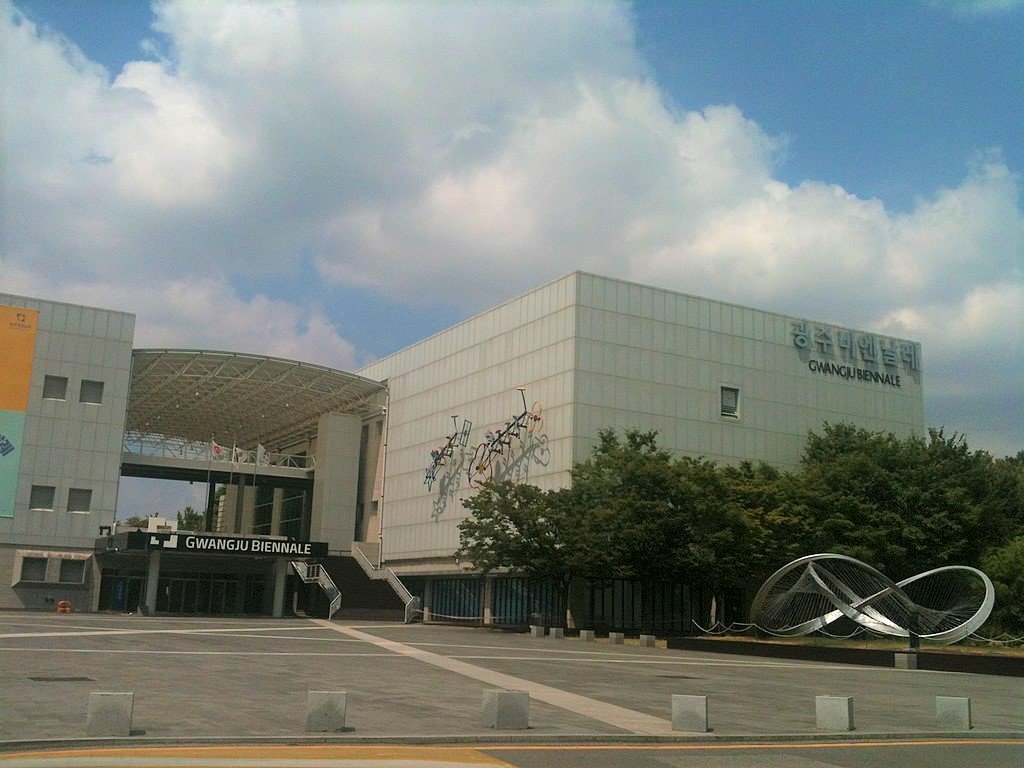Turning the Gwangju Biennale into a Working Organisation: Statement on the Gwangju Biennale

Monday 19 July 2021
The Museum Watch Committee (MWC) expresses its great concern regarding the resistance to the organisational reform of the Gwangju Biennale Foundation, the organiser of the Gwangju Biennale.
The Gwangju Biennale is an internationally regarded artistic event of particular importance to both local and global art scenes. Founded in 1995 in memory of the Gwangju Democratisation Movement, it is one of Asia's most well-established biennials and has been generating productive discourse on contemporary art, continuing international cultural exchange, and exhibiting high-quality visual art over the past twenty-five years. In this time, a great number of outstanding curators of international renown have worked on successive editions of the biennial, including Defne Ayas and Natasha Ginwala, Binna Choi, Sukwon Chang, Okwui Enwesor, Charles Essche, Gridthiya Gaweewong, Massimiliano Gioni, Hou Hanru, Kim Hong-hee, Yongwoo Lee, Youngchul Lee, Kwangsoo Oh, Maria Lind, Jessica Morgan, Wankyoung Sung, Harold Szeemann, and many others.
The MWC, consisting of museum professionals, has been following with concern the recent news on art media and statements released by the Foundation, all of which point to a deep crisis within the organising body. While the current situation is too complex for our external assessment, the fact of the Foundation’s inefficient and outdated organisational structure has been commented upon with increasing urgency for many years now, and it is widely agreed that its current structure is ill-suited for a professional event as large and with as high artistic ambitions as the Gwangju Biennale.
There have been attempts by former Foundation executives to introduce systemic change, many of which failed in the face of bureaucratic resistance. As we understand, one of Sunjung Kim’s tasks as President of the Foundation was to reform and improve existing modes of operation. With Kim at the helm, the Foundation carried out multiple consultations and audits which revealed an organisation in urgent need of restructuring. The Foundation’s management made decisions based on this, subsequently drawing the ire of its employees.
We assume this tension might have caused the personal conflict between Kim and a few former employees as seen in recent news. Kim’s statement addressing the issue underscored how she had accepted this position, despite her initial hesitation, on the encouragement of Okwui Enwezor, who stated that he would like to see her turn the Gwangju Biennale into a working organisation. Enwezor’s memory is a good one to uphold. These structural improvements are very much desired and expected by the international community, while inaction might see a gradual decline of the Biennale’s credibility in the near future.
CIMAM sent a letter to the Mayor of Gwangju expressing its concern and asking for the City Council of Gwangju to commission an independent external assessment geared at establishing a clear roadmap for the future of Gwangju Biennale and its Foundation, analysing the existing challenges, indicating possible solutions, and setting out organisational and governance criteria to keep the highest international relevance of the biennial. We are convinced that systematic structural changes and a clear strategy for the development of the biennale will make it possible to maintain its artistic quality, credibility, and relevance to local and global communities.
One of the objectives behind the creation of the biennial was to heal the traumatic history of the 1980 Gwangju Uprising through aesthetic means. The famous “spirit of Gwangju” and involvement of many individuals and institutions made the biennial possible, and soon it became a driving force for the contemporary art of Korea as well as a platform to connect the arts throughout the world. With its history in mind, we believe that the time has come to heal the Gwangju Biennale.
In representation of the CIMAM Museum Watch Committee integrated by:
Bart de Baere, Director, M HKA Museum of Contemporary Art Antwerp, Belgium.
Sarah Glennie, Director, National College of Art and Design. Dublin, Ireland.
Calin Dan, Director, MNAC Bucharest—National Museum of Contemporary Art. Romania.
Malgorzata Ludwisiak, Independent Art Critic, Curator, Ph.D. Warsaw, Poland.
Victoria Noorthoorn, Director, Museo de Arte Moderno de Buenos Aires. Argentina.
Eugene Tan, Director, National Gallery Singapore and Singapore Art Museum. Singapore.
CIMAM – International Committee for Museums and Collections of Modern Art, is an Affiliated Organization of ICOM.
In the Press:
Arts Asia Pacific, by Gabrielle Tse, 20 July 2021. Museum Watch Committee Urges Gwangju Biennale Foundation to Undergo Reform